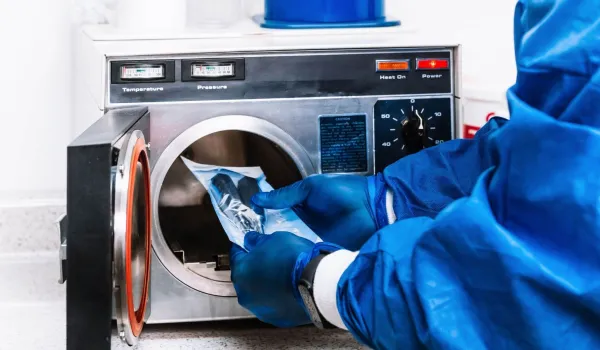
While pairing very specific skills taught in the military with health care careers is challenging, it's easy to pinpoint the overall skill set gained from military experience that becomes useful in any profession.
"In the military, you get taught a specific set of skills that fit into the system," said Jacquelyn Kerl, Director of Compliance & Quality Assurance at Concorde Career Colleges Inc. and a retired Airman First Class in the U.S. Air Force. "Skills like teamwork, chain of command, ethics, dependability, loyalty, commitment, and dedication. The soft, intelligible skills you get with the military are vital in every profession."
Health care skills in military training
Shane Pearson, MA.ED., BSHS, RRT, RPFT, CCT, is the Director of Concorde's Respiratory Therapy Program in Aurora, CO. He also is a retired Master Sergeant with the U.S. Air Force with more than 23 years of experience in Respiratory Therapy and three years' experience in aircraft armament munitions. As a member of the USAF Cardiopulmonary Laboratory (CPL) career field, he gained experience as a clinical preceptor, clinical instructor, assistant director of clinical education and director of clinical education, eventually leading to the appointment of Program Director for the CPL Program. If anyone knows about health care careers as they relate to military experience, it's him.
During the 9/11 attacks, Pearson was deployed to the Pentagon to provide medical support. During wartime deployments to Turkey, Iraq, and Afghanistan, he worked with units to provide emergent/critical care to wounded servicemen and locals.
"All armed servicemen enlisted in the U.S. Military Medical Corp are required to provide the best medical care possible to all wounded individuals regardless of race, religion, creed, ally or enemy," Pearson said.
Correlating to health care careers
According to Pearson, servicemen and servicewomen possess the main characteristics necessary for those in health care careers, including dependability, punctuality, teamwork, and maintenance of professional appearance. In addition, they have the ability to remain composed when faced with critical situations and the ability to improvise to complete tasks during equipment or staffing deficiencies.
"In health care, we are not able to select our patients," Pearson said. "We do not have control over our co-worker's attendance, and we cannot predict when equipment will malfunction. But, regardless of any of these obstacles, the job must be completed."
A sense of self-worth
Kerl said the sense of self-worth one gets through military experience allows one to seek more job-specific skills to build on what you've already learned.
"Political science doesn't translate directly to science," she said. "But there are those soft skills that you certainly need in both."
"You still need training in physical skills. But, it's those soft skills that are huge and carry over to any profession."
Pearson said the similarities of his military experience to health care careers was one of the main things that attracted him to come work at Concorde.
"The single most important entity attracting me to Concorde Career College was how closely their core values mirrored the USAF core values - integrity first, service before self (customer service and respect for the individual) and excellence in all we do (teamwork and achievement)," he said.
Take The Next Step Towards a Brighter Future
We have a Concorde representative ready to talk about what matters most to you. Get answers about start dates, curriculum, financial aid, scholarships and more!




